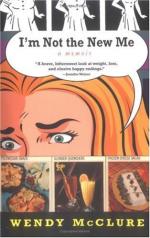“I intend this letter
for you and Madison together; and if you
and he or either shall think
fit to drop me a line, I shall be
pleased.
“Yours with respect,
“A. LINCOLN.”
LINCOLN AND HARDIN.
As the time drew near for the convention of 1846 Lincoln learned that Hardin proposed to contest the nomination with him. Hardin certainly was free to do this. He had voluntarily declined the nomination in 1844, because of the events of the Pekin convention, but he had made no promise to do so in 1846. Many of the Whigs of the district had not expected him to be a candidate, however, arguing that Lincoln, because of his relation to the party, should be given his turn. “We do not entertain a doubt,” wrote the editor of the “Sangamo Journal,” in February, 1846, “that if we could reverse the positions of the two men, a very large portion of those who now support Mr. Lincoln most warmly would support General Hardin quite as warmly.” Although Lincoln had anticipated that Hardin would enter the race, it made him anxious and a little melancholy.
“Since I saw you last fall,” he wrote on January 7, 1846, to his friend Dr. Robert Boal of Lacon, Illinois, in a letter hitherto unpublished[8], “I have often thought of writing you, as it was then understood I would; but, on reflection, I have always found that I had nothing new to tell you. All has happened as I then told you I expected it would—Baker’s declining, Hardin’s taking the track, and so on.
[Footnote 8: This letter is still in the possession of Dr. Boal of Lacon, Illinois, and the right of publication was secured for the Magazine by W.B. Powell of that city.]




